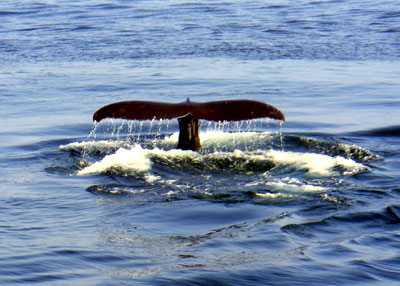All Nonfiction
- Bullying
- Books
- Academic
- Author Interviews
- Celebrity interviews
- College Articles
- College Essays
- Educator of the Year
- Heroes
- Interviews
- Memoir
- Personal Experience
- Sports
- Travel & Culture
All Opinions
- Bullying
- Current Events / Politics
- Discrimination
- Drugs / Alcohol / Smoking
- Entertainment / Celebrities
- Environment
- Love / Relationships
- Movies / Music / TV
- Pop Culture / Trends
- School / College
- Social Issues / Civics
- Spirituality / Religion
- Sports / Hobbies
All Hot Topics
- Bullying
- Community Service
- Environment
- Health
- Letters to the Editor
- Pride & Prejudice
- What Matters
- Back
Summer Guide
- Program Links
- Program Reviews
- Back
College Guide
- College Links
- College Reviews
- College Essays
- College Articles
- Back
How a Hard Fought Bill Does Nothing
In response to the 2013 documentary Blackfish, to better protect captive killer whales California legislature passed the Orca protection Act AB 2305 in 2015 and finalized in 2016. The bill prevents the holding, moving, selling, or breeding of Killer whales in California unless for research purposes, or rehabilitation, or otherwise allowed but must be sent back into the wild when fit to do so. The maximum punishment for violating this law is a $100,000 fine. The bill is a step toward freeing Killer whales from captivity and could possibly be a gateway to releasing other animals from captivity.
Although the bill helps prevent bringing more Killer whales into captivity, this bill is not enough.
The bill helps stop any more killer whales from being kept in captivity, but that is all it does. It helps but only a little if at all. The bill only applies to California, and it barely does anything for Killer whales already in captivity. The law states that “ An orca held for rehabilitation or research purposes shall be returned to the wild whenever possible, and if a return to the wild is not possible, the orca may be used for educational representations.” The Killer whales in captivity are violent with each other, have weakened dorsal fins, don't know how to hunt, and can’t actually communicate with other killer whales because they all speak different “languages.” These whales will not be ready for release back into the wild because they never learned the required behaviors to survive in the wild, and if you really wanted to stretch it, you can’t release an animal back into the wild if it was born in captivity and has never been in the wild. A lot of the killer whales in California will not be released but simply will be used for “educational” purposes instead of performance.
As stated by Hower Garret, Orca researcher, “Each community has a completely different set of behaviors. Each has a complete repertoire of vocalizations, with no overlap” What he means by this is that every pod is like a family and every family has their own family dynamics and in this case languages or “vocalizations.” Howard says they have no overlap when referring to there vocalizations because killer whales in the wild learn to speak to their own pods. Because these animals come from different “cultural subsets” and not being able to understand each other, the whales can be violent with each other, Raking them with their teeth, and sometimes killing each other. This makes it extremely hard to successfully release killer whales into the wild because we don't know where the whale's original pods and we can't just force a killer whale into an unfamiliar pod.
The bill only addresses a small part of the issues brought to the light by Blackfish, but it is a process, and this is just one of the first steps to ending the exploitation of Killer whales. The best way to let these animals be free but still keep them safe is to rehabilitate/ habilitate the whales to be able to hunt for their own food and then place them in large sea pens. The Orcas could live the rest of their lives in the sea pen, potentially have offspring, create real and natural pods, then be fully released into the wild. It would cost tens of millions of dollars to create and maintain the sea pen, but SeaWorld is a multi-billion dollar company who could easily spend the money to build the sea pen that could potentially pay for itself if they opened it to the public and actually used it as an educational sanctuary. SeaWorld alone owns 26 out of the 52 whales in captivity. Seaworld would be setting free half of all the killer whales currently in captivity, plus after the Killer whales are gone, the sanctuary could be repurposed for other marine and animal life. A sea pen is an ideal way to combat the captivity of orcas while keeping corporations happy by still providing the possibility of profit and restoring their name.
Works cited
Cowperthwaite, Gabriela, director. Blackfish. Common Sense Media, 2013.
Herreria, Carla. “SeaWorld's Controversial Orca Show Ends For Good In California This Sunday.” The Huffington Post, TheHuffingtonPost, 5 Jan. 2017.
“How SeaWorld's Orcas Could Go Home Again.” YouTube, TakePart, 16 June 2016.

Similar Articles
JOIN THE DISCUSSION
This article has 0 comments.

I wrote this peace after watching the documentary, Blackfish. After doing more reasach I found the Orca protection Act AB 2305. At first I was excited but as I read it more, I started to realize how little it was doing.